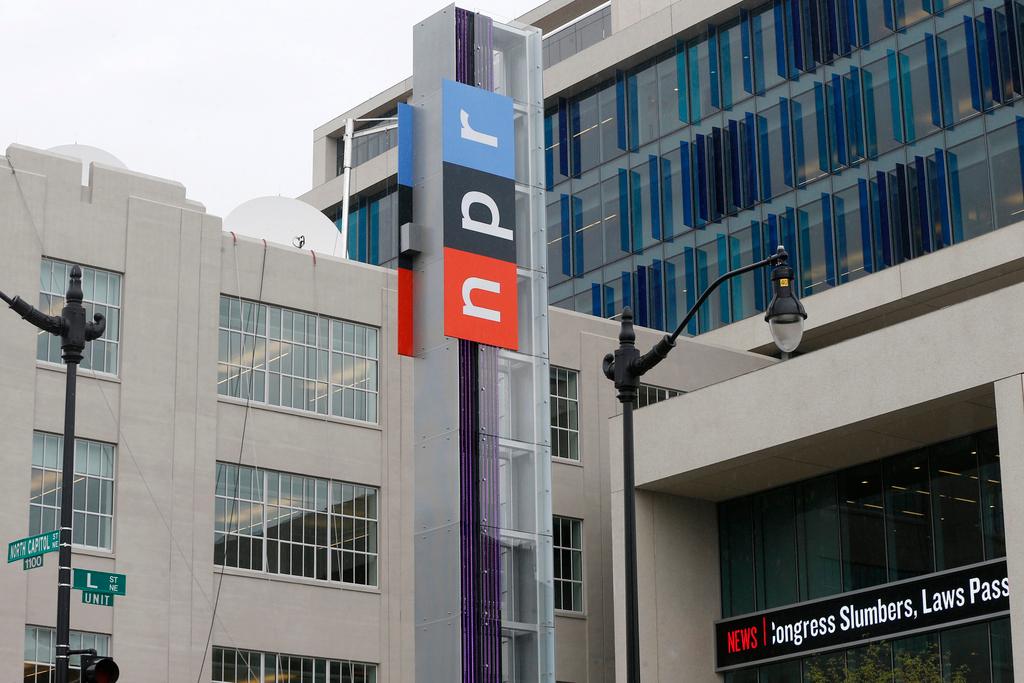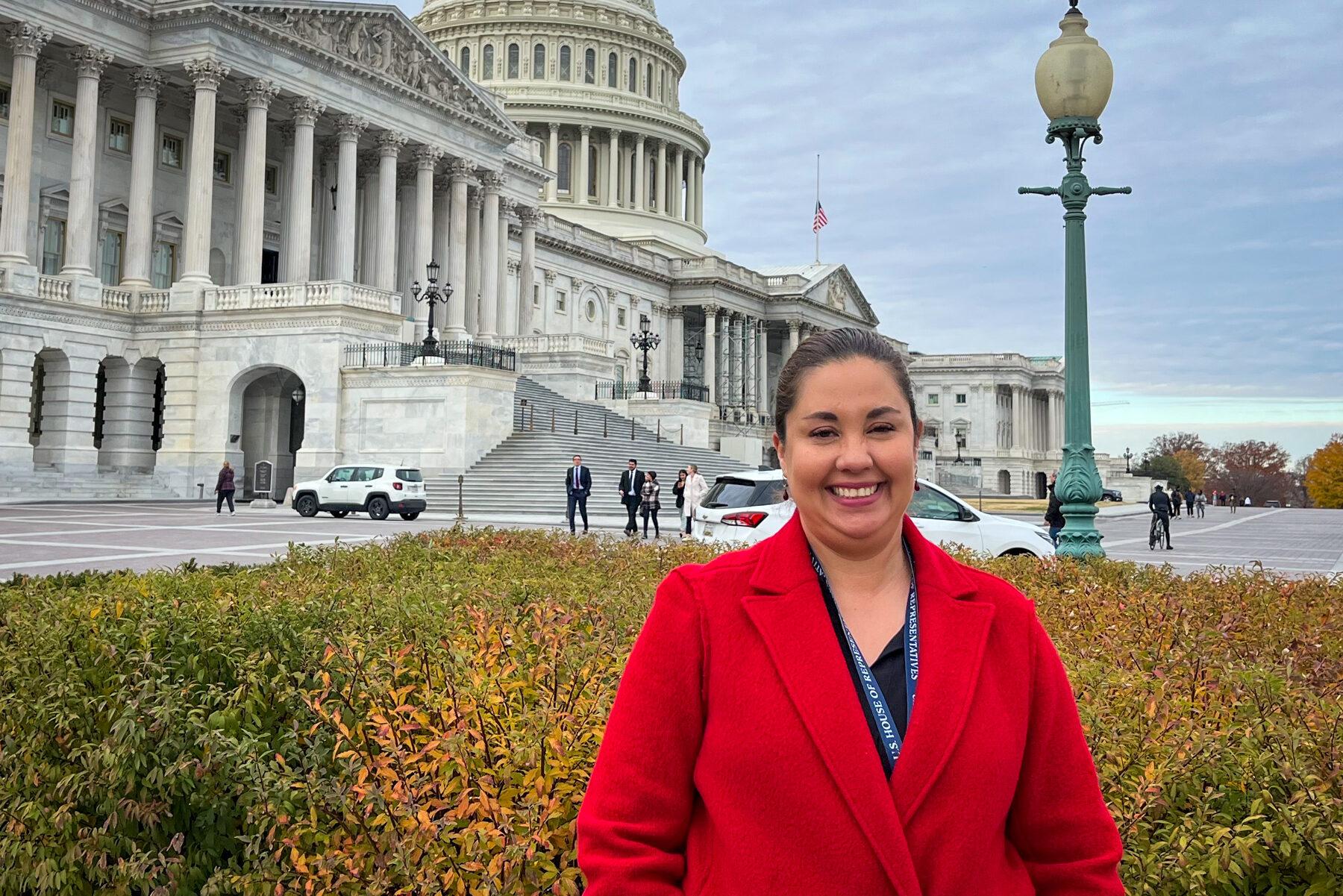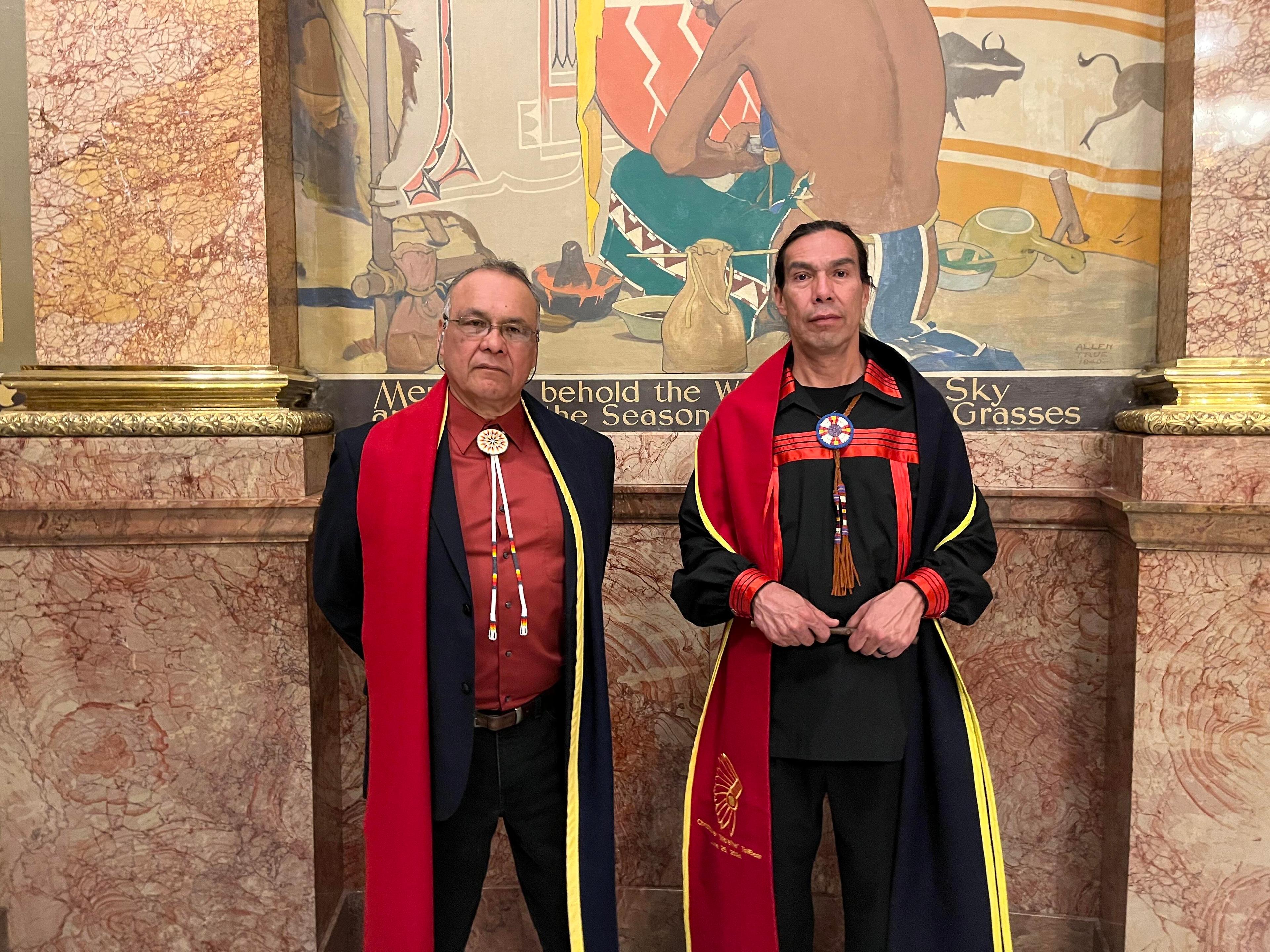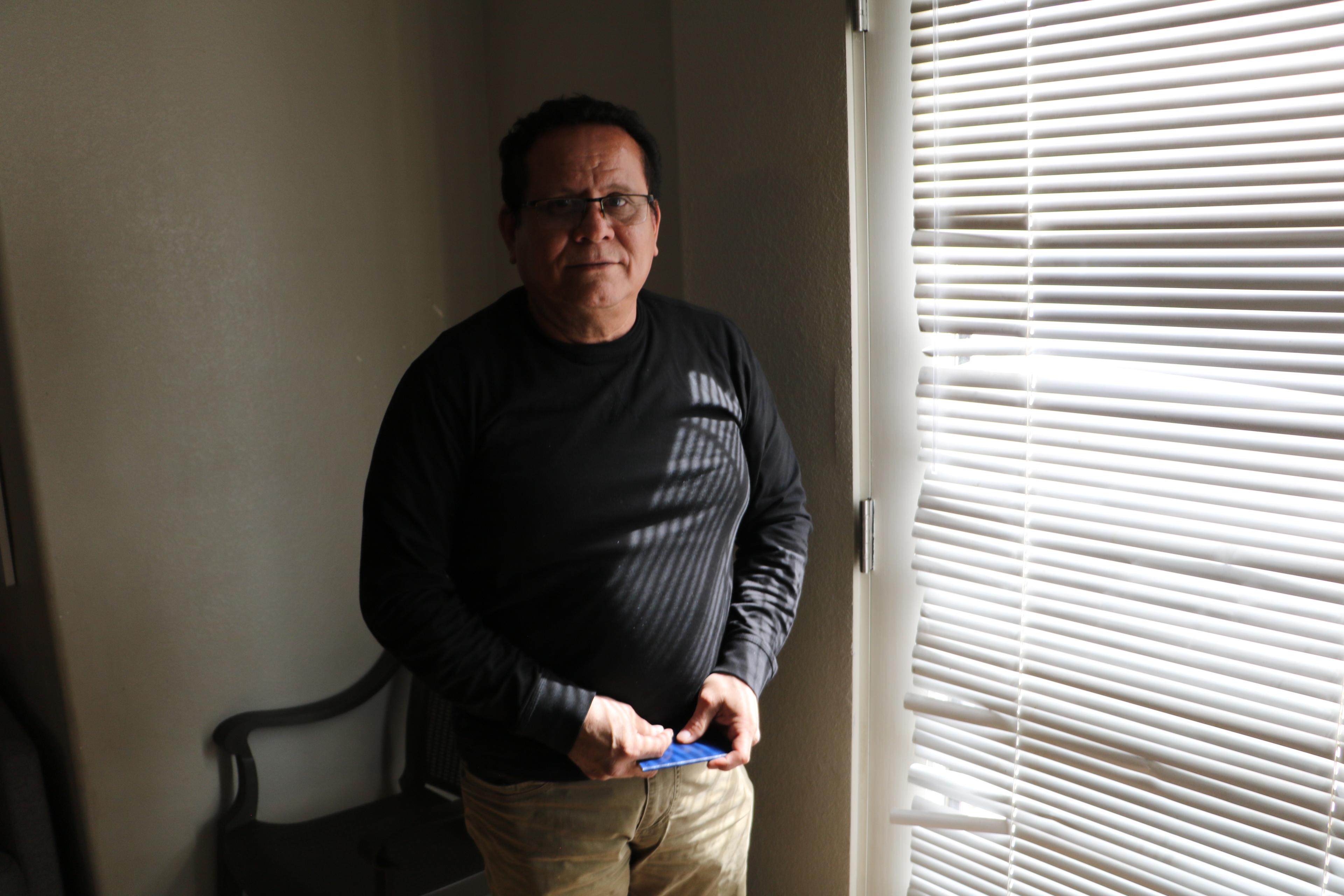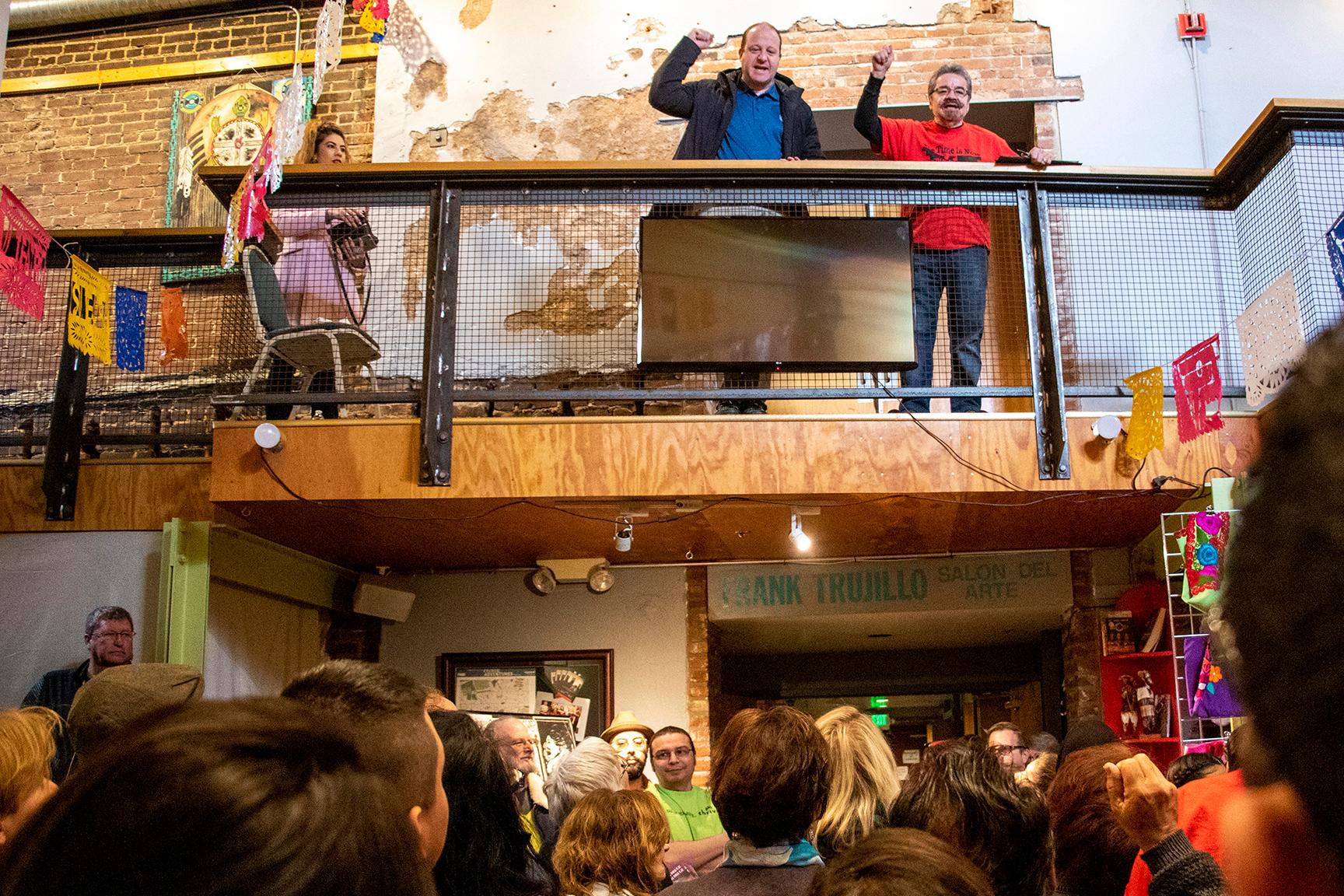
Federal arts funding is one of the areas going through whipsaw changes under the new Trump administration, with many Colorado arts organizations wondering whether, and how, they can adapt to the new reality.
Major changes to the National Endowment for the Arts grant requirements include restrictions on diversity initiatives and an increased focus on patriotic themes for America 250.
"This is speaking for myself and my own values, (but) I think I want to be very intentional about the kind of programming that we would consider that would align with these guidelines and make sure that it represents an America that stands for all of its citizens. And there's a challenge in that of course," said Emily Van Fleet, Artistic Director of the Creede Repertory Theatre.
NEA funding this round for CRT was a $20,000 NEA grant to support its Headwaters New Play Program.
Van Fleet emphasized that the theatre will maintain its values, come what may. "Who we are as an organization doesn't change and how we do business and who we welcome and the culture of belonging that we have fostered over the last several years.”
But groups that stand by their existing diversity efforts could likely be risking their shot at grant funding considering President Trump’s executive orders.
NEA Arts Education Director Michelle Hoffman said during a recent webinar with arts organizations that "applicants must certify that they do not operate any programs promoting DEI that violate federal anti-discrimination laws, including programs outside the scope of their NEA project.”
Already the NEA has made a number of changes to its funding programs, including:
- Eliminating the Challenge America grant program, which focused on bringing the arts to underserved communities, and integrating it into the broader Grants for Arts Projects (GAP).
- An increased emphasis on supporting America 250 anniversary programming.
- 2025 grant application deadlines shifted to March 11 and July 10.
- Grant applications will now be processed through a consolidated program.
According to an NEA fact sheet, the Endowment distributed more than $35 million in Colorado between 2019 and 2023, awarding 272 direct grants as well as funding state and regional partners.
Colorado arts organizations, already managing post-pandemic recovery, are strategizing responses to the new federal landscape, while maintaining their core missions.

For Creede Repertory Theatre, now in its 60th season, any loss of funding wouldn’t just be felt by the organization, but also its surrounding community. CRT is the largest employer in Mineral County, with an annual budget of $2 million and a significant local economic impact. It generates an average of $3.75 million locally — over 14 percent of the city's total sales tax revenues. Each summer, CRT employs approximately 75 theater artists alongside year-round staff, producing 4-5 shows in repertory and reaching over 35,000 young people through education programs.
CRT sees the NEA changes as a challenge but not an insurmountable one.
The theater's leadership emphasized that while NEA funding represents only about 3 percent of their budget, the grants carry significant prestige. Managing Director Morgan Manfredi is hopeful that community support could help fill any gaps.
"CRT's biggest supporters have always been the community because they understand we invest in them and they invest back in us," Manfredi said. "If there was a situation in which some of that government funding were to disappear… we will find that funding elsewhere."
And Manfredi maintains a broad perspective when it comes to potential NEA changes; she notes the bigger risks to CRT are things like drought, wildfire and recession, which might keep their audiences away.
"On the list of potential existential crises… I think this one could potentially be more damaging to the industry. I think this one has less potential to be damaging to our individual institution," she said.

The challenges are different for Boulder-based Motus Theater, whose mission centers on creating original theater to facilitate dialogue on critical issues. The organization specializes in bringing silenced histories to the stage through multimedia performances, with autobiographical monologues that explore U.S. history through the lens of race, class and gender. The group received a $35,000 NEA grant last year to support "Youth Behind & Beyond Bars: Stories from the Juvenile Justice System."
"Motus is all about community," Producing Executive Director Rita Valente-Quinn said. "We believe strongly in the community that we've been growing through our projects ... So my hope is that folks will show up to support the work if we don't receive these funds through the NEA.”
Christian Solano-Cordova, Motus Theater's Director of Communications, Outreach and Development also looks to Coloradans.
“We're not waiting on federal decisions to determine our future because these stories that Motus shares, they come with, or they focus on, healing and justice. And the need for these stories is too great. So Motus is going to find a way forward,” said Solano-Cordova. “And I hope Coloradans will take a look at our programming and if they're familiar with it, they'll support Motus because ultimately we need this work to continue whether the NEA funds our work or not.”
Another NEA grantee, Su Teatro, has evolved from its roots as a student-organized theater group during the Chicano Civil Rights Movement of the early 1970s into a comprehensive cultural arts center in Denver.
For nearly 50 years, the organization has built a national reputation for homegrown productions that speak to the history and experience of Chicanos. Su Teatro, which received a $15,000 NEA grant to present "Yankee Bajan" by Linda Parris Bailey, produces a full season of theater alongside the XicanIndie FilmFest, Chicano Music Festival and educational programming through its Cultural Arts Education Institute.

Executive Artistic Director Tony Garcia has been reflecting on the NEA’s new push for arts groups to focus on America 250 programming, in particular.
"It's such a weird twist to have us now defending the structure of this country when we work so hard to append it and to restructure it," he said.
“Su Teatro has always come from a standpoint of cultural identity... It's really about going deeper into what our cultural heritage is, which is an American heritage. So I think we would be open to that debate... to challenge to say this event, this activity is about patriotism, is about the sacrifices that our community has made, our people have made for this country," Garcia said.
The NEA has clarified that while America 250 projects are encouraged, they are not required for funding. Organizations predominantly serving specific communities can still apply for grants, though they must comply with new federal guidelines regarding DEI activities.
"We will continue to fund excellent arts projects of all kinds," Huffman said during the webinar. "America 250 is not the only area of interest that we encourage."
That hasn’t stopped artists nationwide from speaking out against the NEA changes. Hundreds signed a letter calling them a ‘betrayal’ of the Endowment’s mission.
For Colorado arts organizations, the situation highlights the ongoing tension between maintaining artistic independence and adapting to shifting federal priorities. In their responses, arts leaders are walking a line between remaining committed to their core values, while also pragmatically exploring ways to potentially qualify for funding that lets them continue serving their communities under evolving circumstances.
"Our community has always supported us, has built every step of what we've achieved," Garcia said. "And we have never looked at our organization or the work that we're doing as trying to crash some kind of mainstream bubble."
The next round of NEA grant applications is due March 11, with another deadline on July 10, 2025. Organizations previously applying to Challenge America must now submit through the consolidated Grants for Arts Projects program.

